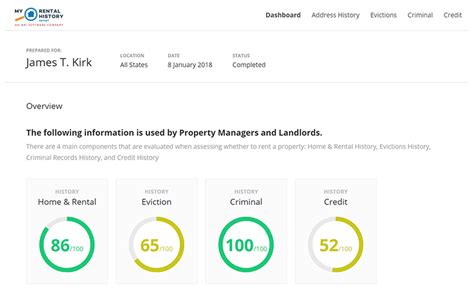Is an Eviction Haunting Your Rental History? Navigating Past Evictions and Securing Future Housing
An eviction on your record can feel like an insurmountable obstacle when searching for a new rental property. Landlords often view past evictions as a significant risk, making it challenging to secure housing. However, it's not an impossible situation. This comprehensive guide explores the impact of evictions on your rental history, strategies for mitigating their effects, and steps to successfully navigate the rental application process.
What Exactly Constitutes an Eviction?
An eviction is a legal process where a landlord removes a tenant from a rental property due to a violation of the lease agreement. This can range from non-payment of rent to damaging the property or violating other terms outlined in the lease. It's crucial to understand that an eviction is a formal legal action, recorded on your rental history, and significantly different from simply moving out without notice.
How Long Does an Eviction Stay on Your Record?
The duration an eviction remains on your record varies by state and reporting agency. Some states may have no set time limit, while others have regulations outlining how long the information is accessible to landlords. Typically, eviction records can persist for several years, significantly impacting your ability to secure new housing.
Can You Rent an Apartment with an Eviction on Your Record?
While challenging, renting an apartment with a past eviction is possible. Many landlords understand that circumstances change, and some are willing to consider applications from individuals with a history of evictions. However, you'll need to demonstrate significant improvement and present yourself as a responsible and reliable tenant.
What are the Options for Someone Facing Eviction?
If you're currently facing eviction:
- Contact your landlord immediately: Open communication is crucial. Discuss the reasons for the potential eviction and explore solutions, such as payment arrangements or addressing lease violations.
- Seek legal assistance: Contact a tenant rights organization or legal aid society. They can advise you on your rights and help you navigate the legal process.
- Explore rental assistance programs: Many communities offer financial assistance programs to help tenants pay rent and avoid eviction.
If you've already been evicted:
- Be transparent: Don't attempt to hide the eviction. Address it directly and honestly in your rental application.
- Explain the circumstances: Briefly and truthfully explain the reasons behind the eviction, focusing on how you've addressed the underlying issues.
- Demonstrate responsibility: Provide evidence of stable employment, positive rental history (if any), and responsible financial management.
How Can I Improve My Chances of Getting Approved Despite an Eviction?
- Improve your credit score: A better credit score demonstrates financial responsibility.
- Obtain a guarantor: A guarantor agrees to pay your rent if you default.
- Provide positive references: Gather references from employers, previous landlords (if possible), and other credible sources.
- Highlight positive changes: Emphasize personal growth, improved financial stability, and any steps taken to prevent future evictions.
- Consider specialized rental agencies: Some agencies focus on working with individuals who have faced past evictions.
What if a Landlord Denies My Application Because of an Eviction?
Unfortunately, landlords have the right to refuse your application. If this happens, review the denial carefully and understand the reasons provided. You might be able to address these issues and reapply later, or seek assistance from a tenant rights organization.
Can I Remove an Eviction from My Record?
You cannot simply remove an eviction from your record. However, you can work on mitigating its impact by demonstrating responsible tenancy and improving your overall profile.
What are the Implications of Repeated Evictions?
Repeated evictions significantly diminish your chances of securing future housing. Landlords are extremely wary of applicants with a pattern of evictions, making it significantly more challenging to find a place to live.
This information is for general guidance only and does not constitute legal advice. Always seek professional legal counsel if you are facing an eviction or have specific questions about your rights and responsibilities as a tenant. Remember, while an eviction can create significant challenges, it doesn't have to define your future. By taking proactive steps, demonstrating responsibility, and being transparent, you can significantly improve your chances of finding suitable housing.

